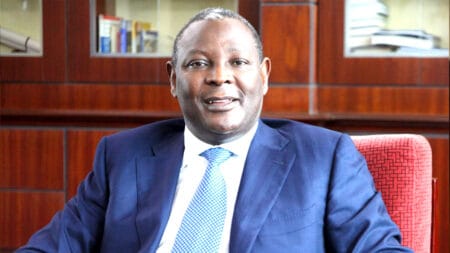Atlantis Life Science Limited Technical Sales Representative Fred Okoth Otieno
Fred Okoth Otieno and Atlantis Life Science Ltd. have once again highlighted the critical need for robust corporate governance frameworks within Kenyan companies. Cases like this serve as a wake-up call not just to Atlantis Life Science Ltd. but to countless other businesses operating in similar environments. Weak internal controls, lack of audit trails, and inadequate employee vetting procedures often open doors to large-scale financial misconduct.
In many businesses, technical sales representatives hold considerable responsibility. They’re the bridge between a company’s offerings and its clients. With this responsibility comes access to sensitive business assets, often making them a soft target or a potential risk. As this case illustrates, even long-serving or well-regarded employees can abuse their positions if the systems in place aren’t strong enough to prevent it.
Organisations in Kenya and beyond must now ask themselves, are we doing enough to prevent internal fraud? This case is likely to trigger deeper scrutiny into how companies monitor employee transactions, especially in high-value, high-risk departments like sales and finance.
When fraud hits a company like Atlantis Life Science Ltd., especially with such a hefty price tag attached, the ripple effect is immediate. Clients may reconsider their partnerships. Potential investors might pull back, worried about the integrity of financial practices. Existing stakeholders could question whether their money is in safe hands.
A scandal of this magnitude doesn’t just impact one person’s reputation; it shakes the foundation of trust that a company is built upon. Atlantis now has to work twice as hard to restore faith among its partners, customers, and shareholders. Investor confidence is key to business continuity and growth, and rebuilding it after such a public ordeal takes time, effort, and a transparent action plan.

Employee fraud isn’t new in Kenya or anywhere else in the world, for that matter. But it’s increasingly becoming a major issue, particularly in sectors with minimal oversight or rapid growth. From SMEs to large corporations, employee-related financial crimes have cost Kenyan companies billions over the years.
According to data from various auditing and legal firms, financial fraud—especially internally driven—is among the top threats facing businesses today. These crimes range from petty cash manipulation to large-scale conspiracy, like in the Atlantis Life Science case. And often, the perpetrators are individuals who had earned the trust of their employers over many years.
Preventing employee fraud requires more than just good intentions—it demands systemic changes. Companies should start by conducting regular audits, both internal and external. They must enforce strict inventory and transaction monitoring systems. Clear lines of accountability and regular employee training can also reduce the chances of misconduct.
In addition, encouraging whistleblower culture through anonymous reporting channels can go a long way in identifying irregularities early. Businesses must treat fraud prevention not as an occasional activity but as a continuous, embedded part of their corporate DNA.
If convicted, Fred Okoth Otieno could face significant legal consequences. Kenyan law treats conspiracy to defraud and theft by an employee as serious crimes, often punishable by long prison sentences and heavy fines. The fact that the amount in question exceeds Sh15 million only increases the potential gravity of his punishment.
The court will consider the nature of the crime, the planning involved, and whether Okoth shows any remorse or offers restitution. Additionally, because he was entrusted with company property and is accused of violating that trust, the court may be less lenient in sentencing if found guilty.
For Atlantis Life Science Ltd., the next steps are equally critical. Internally, the company must conduct a comprehensive audit to uncover the full extent of any losses and check for other potential fraud schemes. It may also choose to pursue a civil suit against Otieno to recover stolen assets.
Externally, the company will need to manage PR fallout, reassure stakeholders, and possibly bring in third-party auditors to restore confidence. How Atlantis handles the post-scandal period will largely determine how quickly it recovers or if it recovers at all.











